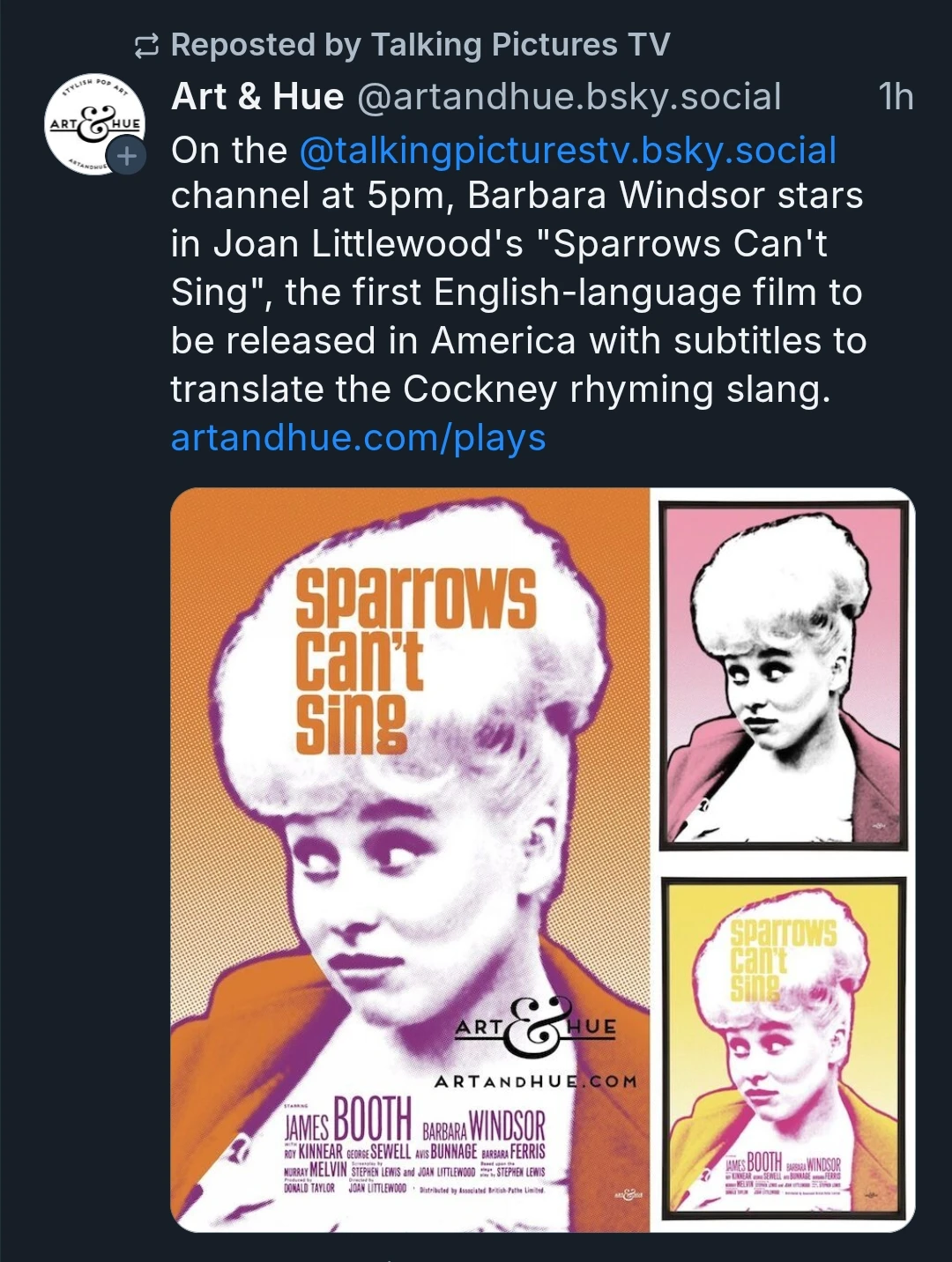British Films
261 readers
1 users here now
For all your British move-going needs as well as news about the British film industry.
See also:
Elsewhere in the Fediverse:
Rules:
- Be excellent to each other
founded 2 years ago
MODERATORS
1
2
3
4
5
6
7
8
9
10
11
12
13
14
0
‘Bond’s audience will be patient’: Amazon MGM Studios’ boss on the hunt for a new 007
(www.theguardian.com)
15
16
17
18
19
20
21
22
0
Silent Sherlock Holmes film to be screened for first time since 1922 release
(www.theguardian.com)
23
0
Actors spotted at Glasgow landmark filming Netflix horror [Guillermo del Toro's Frankenstein]
(www.glasgowtimes.co.uk)
24
0
Kneecap is a sweary, crude and brilliantly political Irish comedy – review
(www.independent.co.uk)
25
view more: next ›
